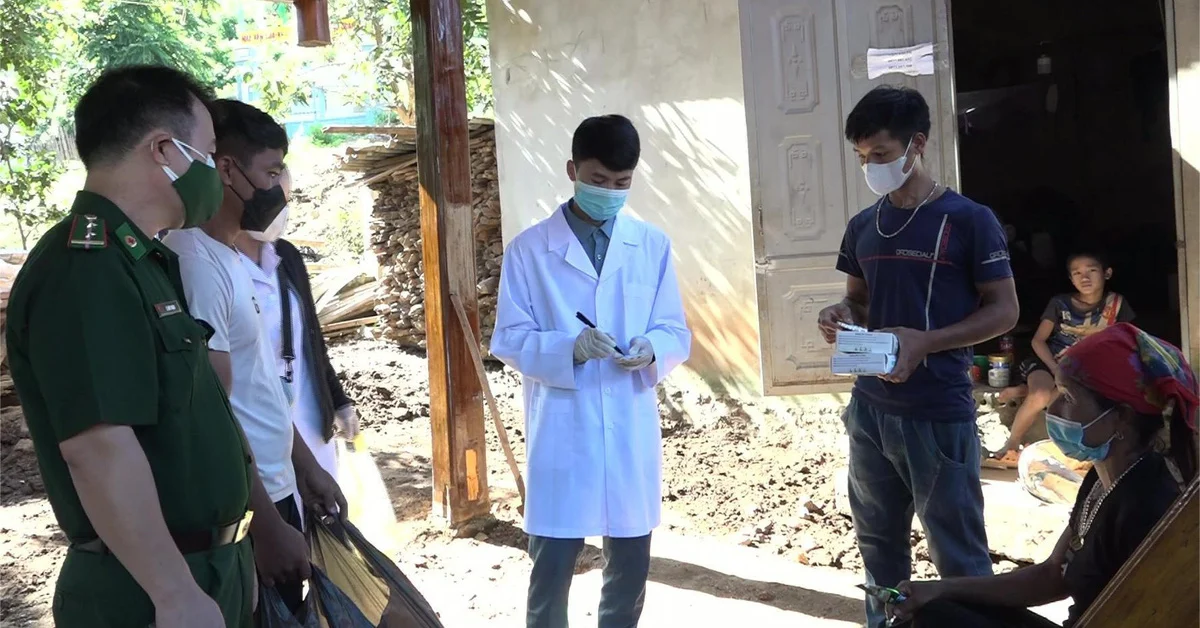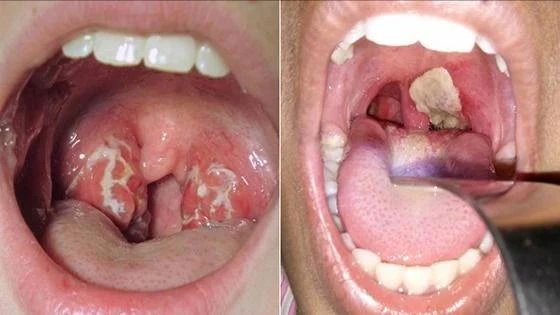The Ministry of Health assessed that diphtheria outbreaks are still under control, and at the same time requested that localities not abuse widespread and inappropriate quarantine.
Regarding the case of an 11-year-old patient in Cao Bang who died of diphtheria, Dr. Hoang Minh Duc, Director of the Department of Preventive Medicine (Ministry of Health), said that small outbreaks are still under control.
The risk of a large, widespread epidemic is low. “Although diphtheria cases are still being reported sporadically in many localities, this is not a complicated problem,” Mr. Duc said.
 |
| Vaccination is an important measure to prevent diphtheria. |
Diphtheria is an acute infectious and toxic disease caused by diphtheria bacteria. In 2023, Vietnam recorded 57 cases and 7 deaths.
From the beginning of 2024 to November 25, there have been 10 cases, including 2 deaths. The cases are distributed in Ha Giang, Nghe An, Bac Giang, Thanh Hoa, and Cao Bang.
According to Mr. Duc, the disease is common in young children, but adults without immunity can also get it. Vaccination is the most effective preventive measure. This vaccine has been used in the Expanded Immunization Program since 1985, helping to reduce the number of cases hundreds of times compared to before.
However, diphtheria still occurs sporadically in areas with low vaccination rates, especially in remote areas where vaccination is difficult.
People in close contact with patients confirmed to have diphtheria need to monitor their health, isolate at home for 14 days and contact health workers if suspected symptoms appear.
The Ministry of Health has directed localities not to abuse widespread isolation, to avoid causing panic and disruption to life. The Department of Preventive Medicine also recommends that children who are eligible for expanded immunization receive all diphtheria-containing vaccines. People in areas with outbreaks should take preventive medication and comply with vaccination as prescribed.
Although diphtheria has declined sharply since the introduction of the vaccine, sporadic cases have re-emerged in recent years in the central, Central Highlands and northern mountainous provinces, where vaccination rates are low.
Complications of diphtheria, such as myocarditis, arrhythmia, neuritis and heart failure, can be fatal at a rate of 5-10%, even 20% in children under 5 years old and people over 40 years old. Therefore, disease prevention by vaccination is the top important solution.
In the Law on Prevention and Control of Infectious Diseases, diphtheria is classified as a group B infectious disease, which is a dangerous infectious disease that can spread rapidly and can cause death. In fact, even when treated, the mortality rate of the disease is up to 5-10%.
In Vietnam, before vaccination, diphtheria often occurred and caused epidemics in most localities, especially in areas with high population density. The disease appeared frequently in August, September, and October. After the vaccine was available, the incidence rate dropped to less than 0.01/100,000 people.
According to experts, the heart is the organ most susceptible to serious complications. About 30% of patients with severe diphtheria have complications such as myocarditis, arrhythmia, heart failure and death.
Diphtheria can also cause neurological complications, which occur in about 5% of severe cases. The disease can damage both the peripheral and central nervous systems.
People at high risk of death are often under 15 years old, over 40 years old, people with kidney and cardiovascular complications, people with poor health, immunodeficiency or patients with support devices in the body, for example artificial heart valve replacement or ventricular shunt placement, intravenous catheter placement.
Currently, vaccines are a quick, economical and safe measure to prevent diphtheria. Mr. Tran Dac Phu, former Director of the Department of Preventive Medicine, Ministry of Health, said that since the diphtheria-pertussis-tetanus vaccine was introduced into the Expanded Immunization Program in 1981, the number of diphtheria cases in our country has decreased sharply.
In recent years, the disease has returned with sporadic cases in the central provinces such as Quang Nam, Quang Ngai, the Central Highlands provinces, and recently the northern mountainous provinces. Through epidemiological investigations, these are all areas with low vaccination rates.
Doctor Bui Thi Viet Hoa, Safpo/Potec vaccination system, said that diphtheria vaccine is included in all combination vaccines 2 in 1; 3 in 1; 4 in 1; 5 in 1; 6 in 1. 6 in 1 and 5 in 1 vaccines can be injected into children from 6 weeks old to 2 years old. 4 in 1 vaccine can be injected into children from 2 months old to under 7 years old.
The 3-in-1 vaccine can be given to children from 4 years of age and adults. In addition, the 2-in-1 vaccine against diphtheria and tetanus can be given to children from 7 years of age and adults.
According to Dr. Viet Hoa, parents need to take their children to get vaccinated on schedule and with the right dose to prevent diphtheria. Because if they are unlucky enough to get the disease, there will be many risks to the child's health.
In addition, according to a representative of the Safpo/Potec vaccination system, for diseases with vaccines, people should not hesitate but need to get vaccinated to protect their own safety and take care of their family's health.
Source: https://baodautu.vn/khuyen-cao-tiem-vac-xin-de-phong-chong-dich-bach-hau-d231014.html




![[Photo] Prime Minister Pham Minh Chinh chairs conference to review the implementation of Resolution No. 18-NQ/TW](https://vstatic.vietnam.vn/vietnam/resource/IMAGE/2025/4/14/dcdb99e706e9448fb3fe81fec9cde410)
![[Photo] Ceremony to welcome General Secretary and President of China Xi Jinping on State visit to Vietnam](https://vstatic.vietnam.vn/vietnam/resource/IMAGE/2025/4/14/5318f8c5aa8540d28a5a65b0a1f70959)

![[Photo] Hanoi people warmly welcome Chinese General Secretary and President Xi Jinping on his State visit to Vietnam](https://vstatic.vietnam.vn/vietnam/resource/IMAGE/2025/4/14/d6ac6588b9324603b1c48a9df14d620c)





















































































Comment (0)